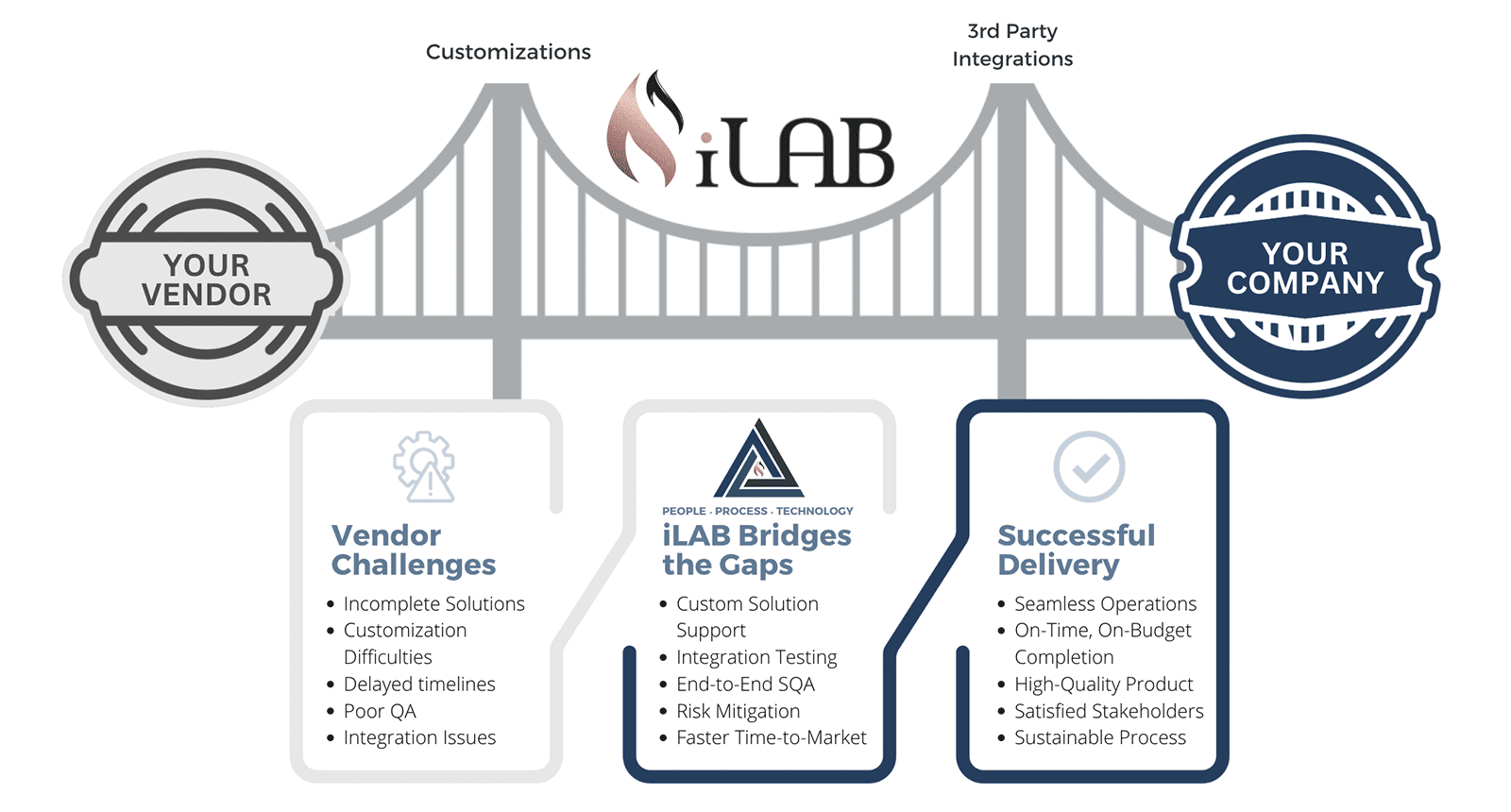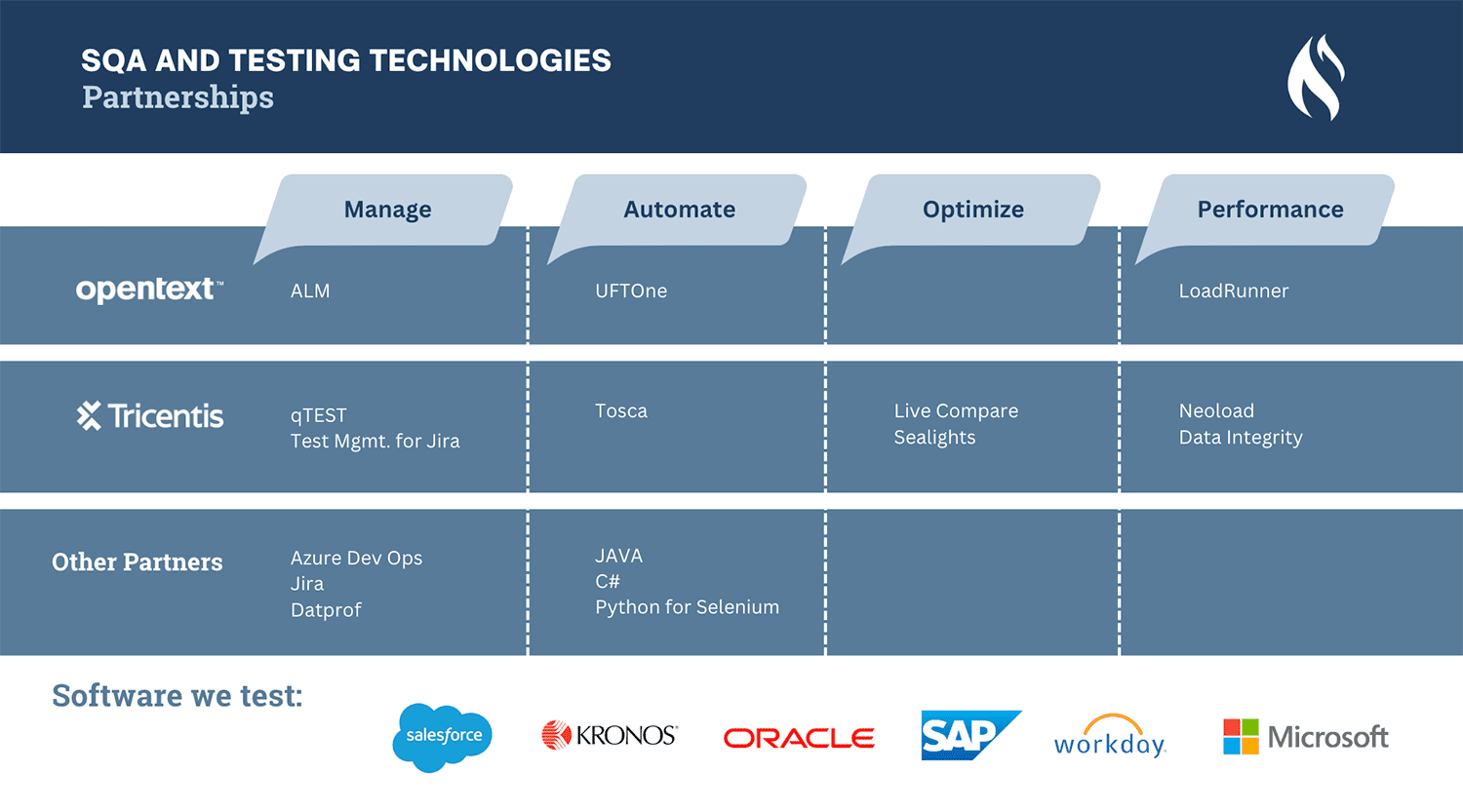
Experience
Take advantage of our years of experience and don’t waste your time reinventing the regression testing practice.
Performance
Our deep experience in software testing allows us to support your software under the toughest conditions.
Guidance
Let us work with you to uncover and avoid project risks in the development process while producing quality software.
Why Regression Test?
Regression testing is a vital component of software quality assurance, ensuring that recent code changes do not adversely affect existing functionalities. Here are some statistics highlighting its significance:
Defect Detection
Regression testing can identify up to 80% of defects introduced after code modifications, making it indispensable for maintaining software reliability.
Automation Adoption
Approximately 85% of organizations have implemented automated regression testing to enhance efficiency and reduce manual effort.
Resource Allocation
On average, 25-30% of the total testing effort in a software development lifecycle is dedicated to regression testing, underscoring its importance in delivering stable products.
Cost Implications
Addressing defects detected during regression testing can be up to 40% less costly compared to post-release fixes, emphasizing the economic benefits of early detection.
Test Suite Growth
Regression test suites tend to grow by 10-15% with each development cycle, reflecting the need for effective test management strategies.
Incorporating regression testing into your development process is crucial for ensuring software quality and customer satisfaction.
Benefits of Regression Testing
Verification of Business Operations Scenarios
Ensures critical business workflows remain intact and operate as intended, reducing the risk of operational disruptions.
Confirmation of Continued System Functionality
Validates that the existing features of the software continue to function correctly after updates, safeguarding user experience.
Development of Comprehensive Regression Test Suite
Creates a reusable and robust test library, streamlining future testing efforts and improving testing efficiency over time.
Addressing Historical Failure Points
Focuses on previously identified vulnerabilities or bugs to prevent their recurrence, enhancing overall system stability.
Incorporation of New or Modified Functionality
Ensures newly added or updated features seamlessly integrate without disrupting the existing system, supporting continuous improvement.
Evaluation of Financial Impact
Identifies potential defects that could lead to costly failures, helping to protect revenue and maintain customer trust.
Testing Crucial Integration Points
Confirms that interactions between different system components remain functional and reliable, supporting interoperability across the application.
Common Challenges with Regression Testing
Common Challenges
- Insufficient Testing Resources
- Lengthy Testing Processes
- Redundant Retest Requirements
iLAB Core Competency Solutions
- Custom Test Automation Frameworks for Broader Coverage
- Continuous Integration and Continuous Testing Practices
- Risk-Based Testing to Prioritize Critical Features
iLAB Regression Testing Capabilities
Discover & Plan
- Requirement Analysis
- Test Strategy Creation
- Regression Testing Tools Selection
- Resource Allocation
- Test Environment Setup
Design & Develop
- Test Case Identification
- Test Data Preparation
- Regression testing automation
- Test Suite Creation
Execute & Report
- Test Execution
- Defect Logging
- Continuous Monitoring
- Result Analysis
- Report Generation
Test Closure
- Defect Retesting
- Test Summary Report
- Feedback Loop
- Documentation
- Release Decision
Candidates for Regression Testing
- Code Modifications
- Critical and Complex Functionalities
- Integration and Interaction Points
- High Usage and Business Impact
- Variability and Performance
- Test cases with frequent defects ((past trends)
- Test cases that cover critical functionality – high impact, high visibility, etc
- Test cases with frequent code changes
- Test cases that cover end-to-end workflows
- Test cases/workflows identified with business users
- Test cases that cover functionality that is most used by clients (high traffic, high volume, high dollar transactions)
- Test cases that cover areas that are complex (calculations-based or complex logic)
Delivery
Flexibility
Flexible delivery options allow us to engage in a way that aligns with your business goals.
Timeframe-Based Engagement
Undertaking projects within a limited timeframe.
Deliverable-Based Engagement
Focusing on specific deliverables and outcomes.

Impactful Outcomes
Improved System Stability
89%
reduction in regression timeDecreased Regression Time
75%
decreased production release deployment timesFaster Production Releases
Case Study
Gaming: iLAB Offers and Interactive Experience Encouraging Customer’s to Keep Playing
The client has a centralized management company that develops software internally and invests in and focuses on developing, operating, and managing hotels, resorts, and casinos. The client required a comprehensive solution to ensure it meets government regulatory requirements. A centralized team of iLAB professionals hosted a test lab replicating multiple casino environments.
Strategic Partnerships
At iLAB, we understand the importance of strategic partnerships to provide our clients with the best possible solutions. We have joined forces with many industry-leading companies. Through these partnerships, we ensure our clients benefit from the synergy of our combined expertise, technology, and resources.

